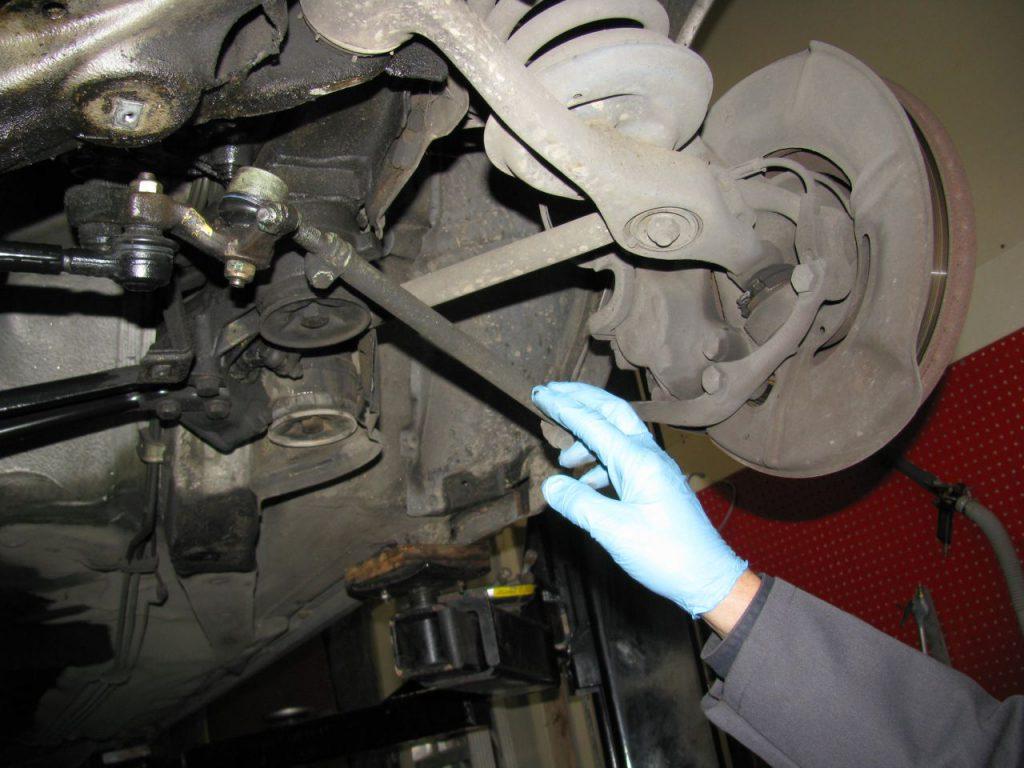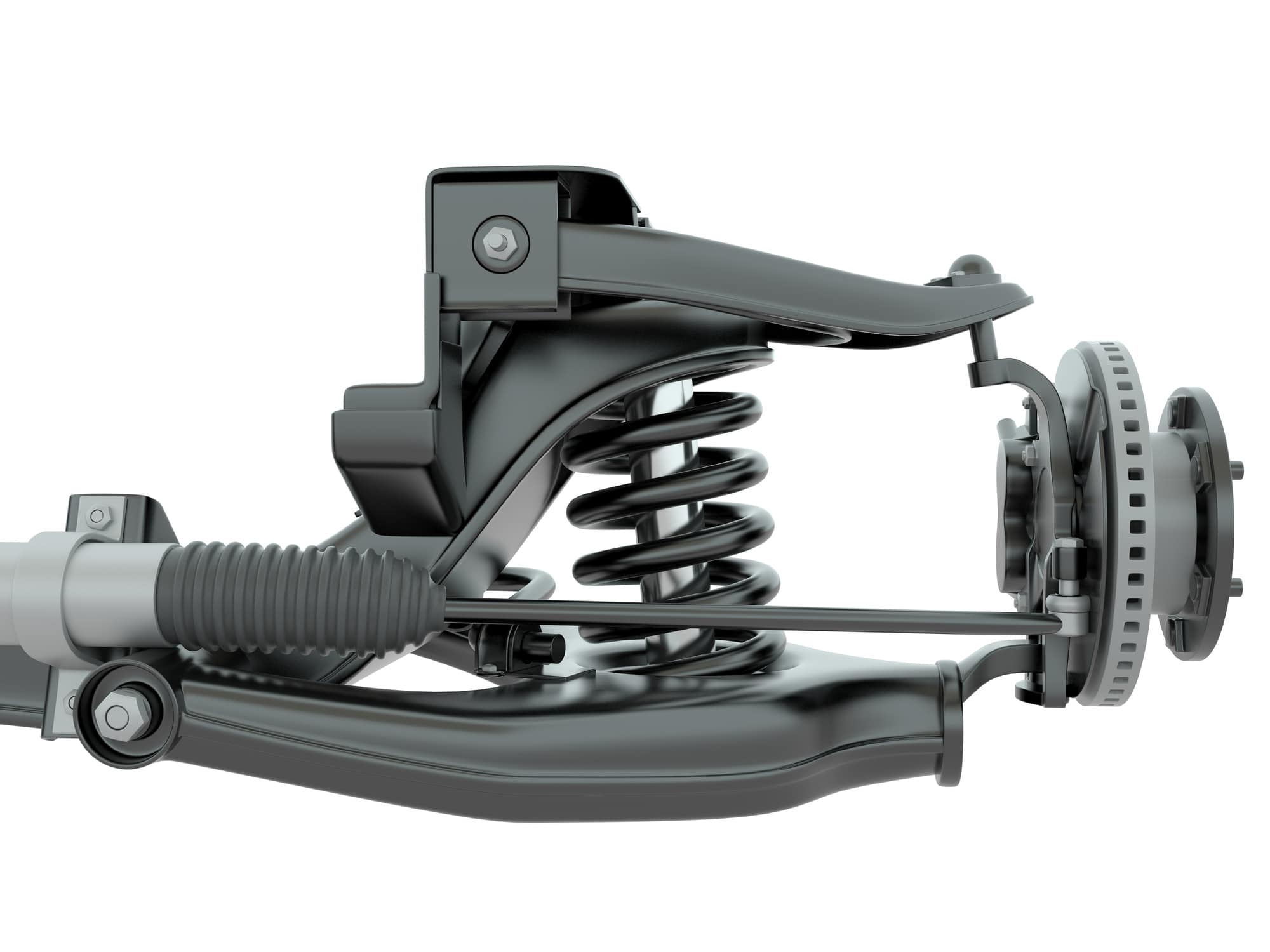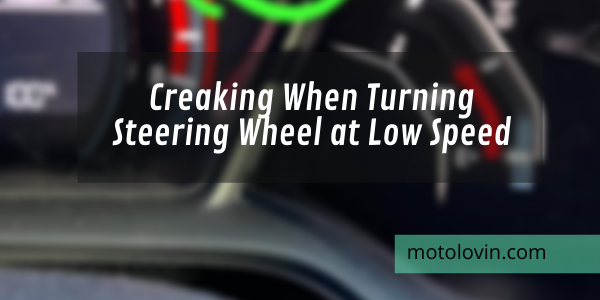If your car creaks when turning the steering wheel at low speeds, it may be due to worn-out suspension components or a lack of lubrication in the steering system. This issue can be resolved by inspecting the suspension and steering components for wear or damage, and ensuring they are properly lubricated.
Additionally, checking the power steering fluid level and condition is important, as low or contaminated fluid can cause steering noises. Overall, regular maintenance and timely repairs are essential to addressing creaking sounds when turning the steering wheel at low speeds, and consulting a qualified mechanic can help diagnose and resolve the issue effectively.

Credit: carfromjapan.com
Potential Causes
Suspension Issues
Experiencing creaking when turning the steering wheel at low speed could be due to worn out or damaged suspension components, such as bushings or struts.
Wheel Alignment Problems
Improper wheel alignment can cause the tires to wear unevenly, leading to creaking sounds when turning at low speeds.
Worn Out Steering Components
If the steering rack, tie rod ends, or other steering components are worn out, it can result in creaking noises during low-speed turns.

Credit: gobdp.com
Diagnosing The Problem
If you hear a creaking sound when turning the steering wheel at low speed, it’s crucial to diagnose the issue promptly to prevent further damage. Here are some steps to help you identify the root cause of the problem:
Listening For The Noise
Turn off any music and drive slowly in a quiet area to listen attentively for the creaking sound when turning the steering wheel.
Checking For Visible Damage
Inspect the exterior of your vehicle for any obvious signs of damage such as dents or scratches that may be causing the noise.
Inspecting Wheel Alignment
Ensure the wheels are properly aligned by visually checking if they are straight and not tilted, as misalignment can lead to creaking noises.
Possible Solutions
If you’re experiencing creaking when turning your steering wheel at low speeds, there are several possible solutions that can help resolve the issue. Some of the most common solutions include:
Replacing Suspension Components
If the creaking sound is coming from your suspension components, it may be necessary to replace them. Worn-out or damaged suspension parts can cause the creaking noise, especially when turning the steering wheel. It’s important to have a professional mechanic inspect your suspension system and determine which components need to be replaced. This could include items such as ball joints, control arms, or bushings.
Aligning The Wheels
Another possible solution for creaking when turning the steering wheel is to have your wheels aligned. Improper wheel alignment can put extra strain on certain components, leading to creaking sounds. By aligning the wheels, you can ensure that they are properly positioned and reduce unnecessary stress on the suspension system. A professional alignment service can help correct any misalignments and improve the overall performance of your vehicle.
Replacing Worn-out Parts
If the creaking sound persists, it may be necessary to replace other worn-out parts in your vehicle. Components such as the power steering belt or the steering column itself can wear down over time and cause creaking noises during turns. By replacing these worn-out parts, you can restore proper functionality and eliminate the creaking. It’s important to consult with a professional mechanic to identify the specific parts that need replacement and ensure they are installed correctly.
In conclusion, creaking when turning the steering wheel at low speeds can be an annoying issue to deal with. However, by considering these possible solutions and seeking professional help when needed, you can resolve the problem and enjoy a smoother driving experience. Remember to have regular maintenance checks for your vehicle to catch any potential issues early on and prevent further damage.
Credit: mechanics.stackexchange.com
Preventive Maintenance
Proper preventive maintenance of your car’s steering system is crucial to ensure smooth and safe driving. By taking proactive measures, you can prevent the occurrence of creaking sounds when turning the steering wheel at low speeds. Regular inspections, lubrication of steering components, and avoiding potholes and rough roads are key preventive maintenance practices that can help keep your steering system in top condition.
Regular Inspections
Regular inspections of the steering system are essential to identify and address any potential issues before they escalate. This includes checking for worn or damaged steering components, loose connections, and abnormal tire wear. By addressing these issues early, you can prevent creaking sounds while turning the steering wheel.
Lubricating Steering Components
Proper lubrication of steering components such as the tie rods, ball joints, and steering shaft can help reduce friction and minimize the occurrence of creaking sounds. Regularly greasing these components according to the manufacturer’s recommendations can prolong their lifespan and ensure smooth operation of the steering system.
Avoiding Potholes And Rough Roads
Avoiding potholes and rough roads can help prevent premature wear and tear on the steering system. These rough driving conditions can put excessive strain on the steering components, leading to increased friction and potential creaking sounds. By driving carefully and avoiding these road hazards, you can maintain the integrity of your steering system and reduce the likelihood of creaking noises.
Seeking Professional Help
If you are experiencing a creaking sound when turning your steering wheel at low speeds, seeking professional help is the best course of action to ensure your safety on the road. Consulting a mechanic and getting a professional diagnosis are crucial steps in addressing the issue effectively.
Consulting A Mechanic
When you notice a creaking sound while turning your steering wheel, it’s essential to consult a qualified mechanic. A mechanic who specializes in automotive steering systems can inspect, identify, and fix the underlying problem. Therefore, bringing your vehicle to a reliable mechanic will help diagnose and resolve the issue promptly.
Getting A Professional Diagnosis
A professional diagnosis is imperative when dealing with steering-related concerns. A skilled mechanic will perform a thorough inspection of your vehicle’s steering components, including the power steering system, suspension, and steering linkage, to identify the root cause of the creaking noise. By obtaining a professional diagnosis, you can address the issue with precision and avoid more significant problems down the road.
Frequently Asked Questions For Creaking When Turning Steering Wheel At Low Speed
What Causes A Creaking Sound When Turning At Low Speed?
The creaking sound when turning at low speed could be due to worn out suspension components, such as ball joints or tie rod ends. It’s essential to have these parts inspected by a professional mechanic to ensure safe driving.
How Can I Fix The Creaking Noise When Turning My Steering Wheel?
You can fix the creaking noise by lubricating the steering components, such as the ball joints and tie rod ends. If the issue persists, it’s recommended to have a professional mechanic inspect and replace any worn out parts.
Is It Safe To Drive With A Creaking Steering Wheel?
Driving with a creaking steering wheel can be risky as it indicates potential issues with vital components. It’s advisable to have the car inspected by a qualified technician to avoid any safety hazards on the road.
Can Low Power Steering Fluid Cause Creaking When Turning?
Yes, low power steering fluid can lead to creaking sounds when turning the steering wheel. It’s crucial to check and maintain the power steering fluid level as part of regular vehicle maintenance to prevent such issues.
Conclusion
If you are experiencing a creaking sound when turning your steering wheel at low speeds, it is crucial to address the issue promptly to ensure your safety on the road. This blog post has highlighted potential causes of the problem and provided helpful solutions.
By following these tips, you can prevent further damage to your vehicle and enjoy a smoother, quieter driving experience. Take action now to eliminate the annoying creaking noise and maintain the overall functionality of your car.
